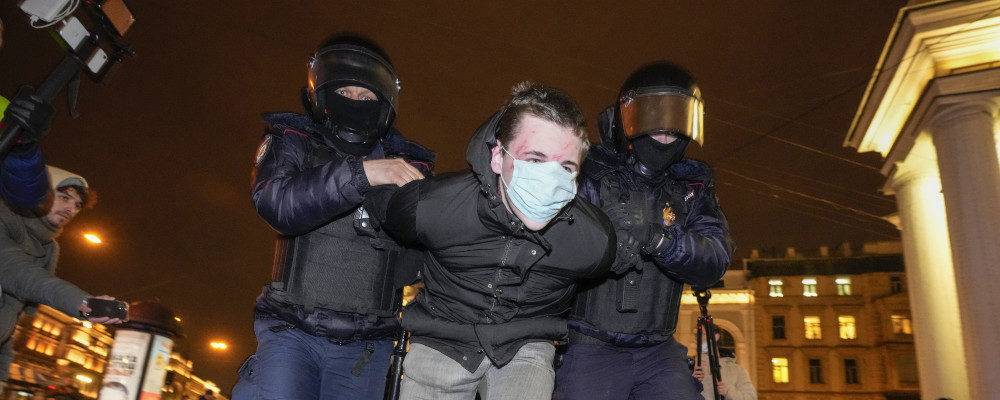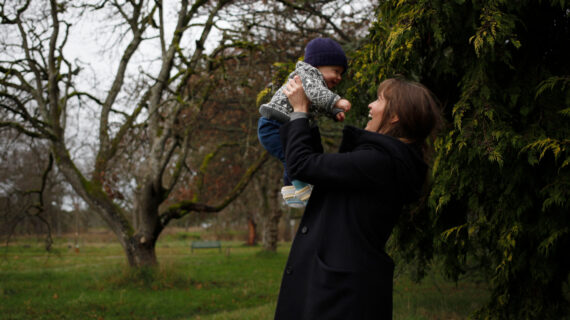When countries criticize each other, they always make a distinction between the people and their government. It’s not the people they attack but the country’s rulers. In the case of Russia, this thinking is changing with the invasion of Ukraine.
A recent survey conducted by RIWI, a Canadian research firm, found that 48 percent of Russians believe that people should support their country even if they know their nation’s actions are wrong.1Half of Russians Believe That People Should Support Their Country Even If Its Actions Are Wrong, According to RIWI’s New Cold War II Index https://www.newsfilecorp.com/release/121083 This support compares with 35 percent in China and 32 percent in the United States. After the 2014 invasion and annexation of Crimea, public support for a total invasion of Ukraine went to 75 percent. Putin took note of his success in rousing public support and was confident he had the people behind him.
Russians can be forgiven for not answering surveys truthfully, given the threat of long prison terms if anyone criticizes the war in Ukraine. But support for the war seems intuitively true. Some put the support for the war at 80 percent.2Putin’s war will destroy Russia https://www.theglobeandmail.com/opinion/article-putins-war-will-destroy-russia/
Russians believe the West intends to destroy their country and a fascist government runs Ukraine, thanks to a steady beat of anti-American propaganda by state-controlled media. Russians feel they are the victims of fake Western news and believe the war—or special military operation—was provoked by Ukrainian Nazis killing innocent Russian-speaking Ukrainians. The atrocities in Bucha and the sinking of their great battleship Moskva destroyed by Ukrainian drone missiles are fabrications by the West. Russians don’t even believe their Ukrainian relatives about the horrific crimes committed by Russian soldiers.
In our post-truth world, facts are malleable, and Putin took advantage with a vengeance. How has Putin’s Big Lie worked while the people’s voices remained muffled and mute?
One reason is that lies proliferate in a system that stifles the media. Joshua Yaffa, a correspondent in Moscow for The New Yorker, explains the deep denial of many Russians in his book, Between Two Fires: Truth, Ambition, and Compromise in Putin’s Russia. The citizen accommodates himself to the realities of the state’s power and manages to get along where bravery takes the form of passive resistance. The book helps to explain how the Kremlin maintains control and how talented Russians are making their way in Putinland. Between Two Fires begins with the work of Yuri Levada, a respected Russian sociologist who calls this new accommodating citizen the “wily man.”
Levada hoped that a new citizen would emerge with the gradual decline of a totalitarian state. Perestroika—reform of the economic and political system—gave some hope that communism hadn’t destroyed the capacity to resist state controls; that dream was short-lived with the fall of Mikhail Gorbachev in 1991. Under Putin, the “wily man” continues to tolerate deception with the desire to be deceived.
Instead of reform, people reverted to their old fears and subservience to the state. It was a step too far for a people subjected to communist rule for over 70 years. Even though there was a desire for many Soviet citizens for freedom, the comfort of security won out. When communism collapsed, the average citizen was now caught between the world of Stalin and Steve Jobs. Putin came along and brought the state back under the direct control of a strongman “responsive to his whims,” controlling the economy, civil society, the law, and the legislature. He even has the support of Moscow’s Patriarch of the Russian Orthodox Church for a war that has already taken tens of thousands of lives with soldiers marauding and killing at will.3Russian Orthodox leader backs war in Ukraine, divides faith https://www.washingtonpost.com/world/2022/04/18/russian-orthodox-church-ukraine-war/
And yet the Patriarch remains silent while Russians act perplexed about why they can’t take vacations in the south of France. Many shrug their shoulders and instead head for the beaches in Turkey, where they still welcome Russian tourists. For most, this feels more like the return of order where the Russian people have rid themselves of the responsibility to govern.
Second, Putin had the good fortune to govern when high energy prices brought billions for himself and tripled average incomes. This happy coincidence kept Putin’s security forces busy killing and stifling his political and media critics, consolidating his power while citizens shopped. The economy was good, and citizens weren’t going to start asking too many questions. Besides, they liked a leader showing the world that Russia was punching back at the arrogant and decadent West.
Citizens long forgot the days when Solzhenitsyn’s book One Day in the Life of Ivan Denisovich shocked the conscience of the average Russian. Twenty-five years after the collapse of the USSR, Russians no longer feel guilty about their country. Here Yaffa quotes Lev Gudkov, Levada’s successor: “the personality type born in that period has proven remarkably stable—a system of consciousness easy to manipulate, yet difficult to change.”
Putin was now in complete control, interested in only power and profit, trapping 145 million in a “cage welded shut by propaganda and repression.” What surprised Yaffa was how many intelligent ordinary Russians acquiesced and accepted their situation as neither good nor bad. Russians tolerated even the unbelievable corruption by Putin and his oligarchs. When the Moskva warship sank, it was a $750 million (USD) loss to Russia, almost the exact cost of Putin’s private yacht now docked in Italy.4Moskva Warship’s Sinking a $750 Million Loss for Russian Military: Report https://www.newsweek.com/moskva-warships-sinking-750-million-loss-russian-military-report-1698163
The third explanation is Russian reverence for their military. May 9 is a sacred day for Russians when they remember the deaths of 27 million Soviets killed fighting in WWII. The Russian army is deeply beloved and held in the highest esteem throughout the country, and any criticism is taken as a harsh betrayal. Even the great scientist and Nobel Peace winner Andrei Sakharov was attacked for daring to criticize the army’s war crimes in Afghanistan. Russians can’t imagine their soldiers other than heroic. Putin is now usurping and betraying love for Russia’s military to justify his war of aggression, claiming victory will be ours as in 1945.
Where were the defenders of democracy of August 1991 when millions of Soviet and Russian citizens took to the streets to denounce and stifle the right-wing coup led by the KGB? Where are the people now when the country needs them? This is not the nation of Chekhov or Tolstoy. This war in Ukraine is damaging Russia’s reputation. Its culture and image are at stake, sweeping up brave Russians against the war and isolating its artists, athletes, businesses, and students. Russians must stop believing that Putin will save world Christianity, or Foreign Minister Sergei Lavrov’s outrageous claim that Hitler had Jewish blood insinuates Ukraine’s president can be both a Jew and a Nazi.
Putin is responsible for the war in Ukraine. But the longer the war continues, the Russians can no longer make excuses for a leader ruining their economy and international rank as a great country. They must see the truth or be as guilty as their leader.




